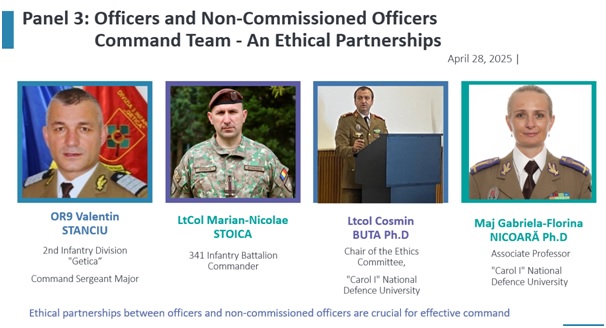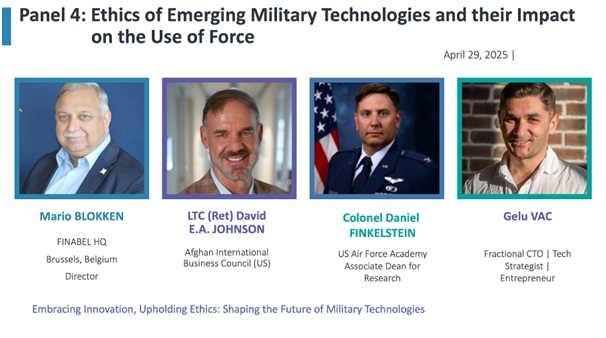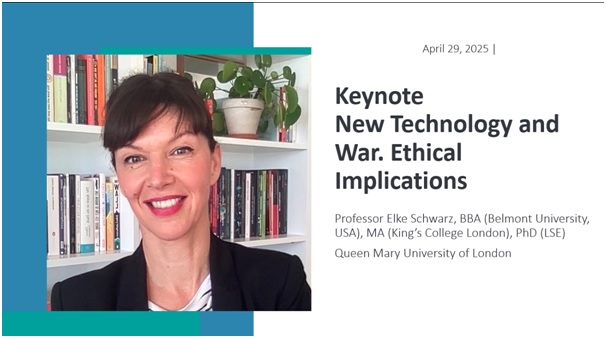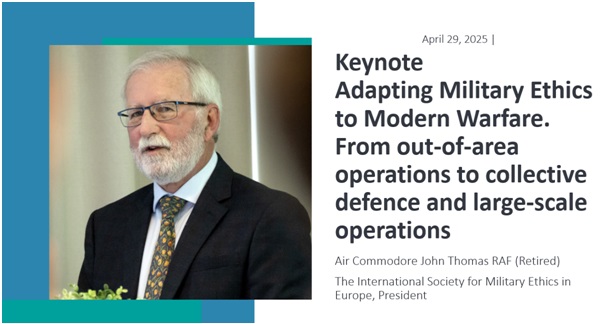Panels:
This panel focuses on the implementation of the NATO Partnership for Peace (PfP) Leadership & Ethics Reference Curriculum. Discussions will explore best practices, operational challenges, and strategies for harmonizing ethical training across member states.
- What is the professional military ethics? Do we have a common understanding across nations?
- What are the most critical elements of the NATO PfP Leadership & Ethics Reference Curriculum?
- How can NATO member states and PfP nations standardize ethical training to meet operational needs? What challenges arise in adapting the curriculum to diverse national contexts?

This panel explores how to cultivate an ethical mindset in future officers, emphasizing the importance of integrating ethical considerations into decision-making processes from the start of military training. Discussions will focus on the moral frameworks and educational methods necessary for ethical leadership.
- What ethical principles should form the foundation of leadership training for future officers?
- How can military academies incorporate ethical reasoning into their curricula effectively?
- What role do mentorship and real-world case studies play in developing ethical competence?

This panel discusses the importance of ethical education in fostering collaboration between officers and non-commissioned officers. Topics include trust-building, role differentiation, and ethical leadership in joint operations.
- How can the SNCO secure an ethical partnership with junior officers as part of the command team
- How can ethical training enhance the partnership between officers and NCOs?
- What mechanisms can improve ethical decision-making in hierarchical relationships?
- How can leaders foster a culture of ethical accountability across ranks?

This panel examines the ethical implications of integrating technologies like AI, autonomous systems, and cyber capabilities into military operations. Topics include the balance between innovation and human oversight and the challenges of accountability in technologically advanced conflicts.
- What ethical frameworks are needed to govern the use of AI and autonomous systems in military operations?
- How can leaders ensure human accountability when using advanced technologies in warfare?
- What are the key ethical challenges in adapting the use of force to hybrid and unconventional warfare?

This panel addresses the ethical responsibilities of military leaders in their interactions with civilian counterparts. Topics include transparency, trust, and maintaining professional boundaries in civil-military cooperation.
- What ethical considerations should guide military leaders in their interactions with civilian authorities and organizations?
- How can military institutions ensure clear and effective communication with civilian stakeholders?
- What lessons can be drawn from past failures in civil-military relations?











